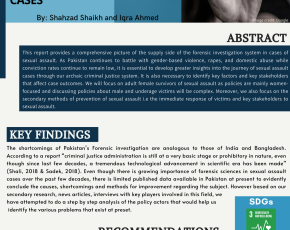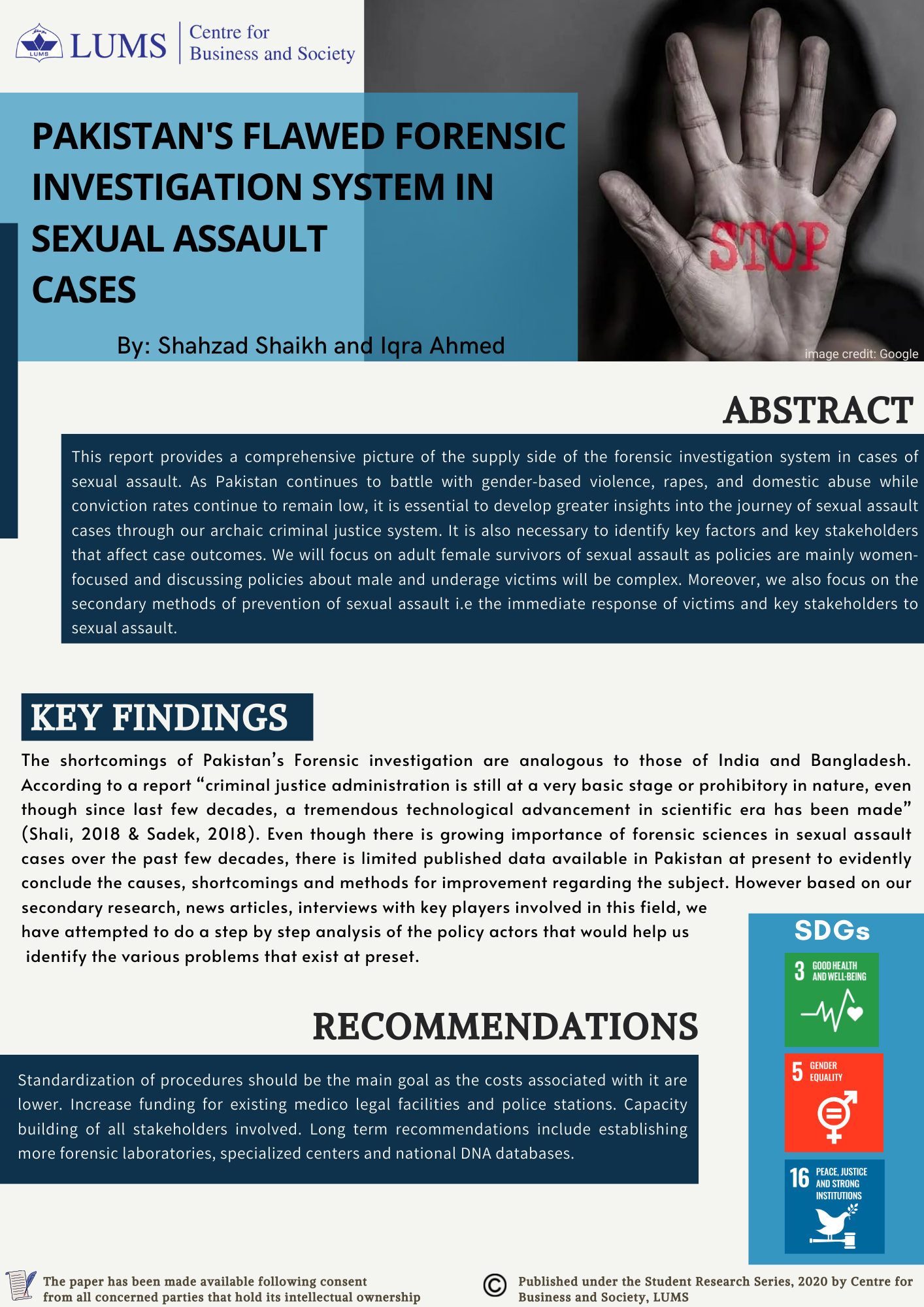Abstract:
This report provides a comprehensive picture of the supply side of the forensic investigation system in cases of sexual assault. As Pakistan continues to battle with gender-based violence, rapes, and domestic abuse while conviction rates continue to remain low, it is essential to develop greater insights into the journey of sexual assault cases through our archaic criminal justice system. It is also necessary to identify key factors and key stakeholders that affect case outcomes. We will focus on adult female survivors of sexual assault as policies are mainly women-focused and discussing policies about male and underage victims will be complex. Moreover, we also focus on the secondary methods of prevention of sexual assault i.e the immediate response of victims and key stakeholders to sexual assault.
Key Implications:
The shortcomings of Pakistan’s Forensic investigation are analogous to those of India and Bangladesh. According to a report “criminal justice administration is still at a very basic stage or prohibitory in nature, even though since last few decades, a tremendous technological advancement in scientific era has been made” (Shali, 2018 & Sadek, 2018). Even though there is growing importance of forensic sciences in sexual assault cases over the past few decades, there is limited published data available in Pakistan at present to evidently conclude the causes, shortcomings and methods for improvement regarding the subject. However based on our secondary research, news articles, interviews with key players involved in this field, we have attempted to do a step by step analysis of the policy actors that would help us identify the various problems that exist at preset.
Recommendations:
Standardization of procedures should be the main goal as the costs associated with it are lower. Increase funding for existing medico legal facilities and police stations. Capacity building of all stakeholders involved. Long term recommendations include establishing more forensic laboratories, specialized centers and national DNA databases.














